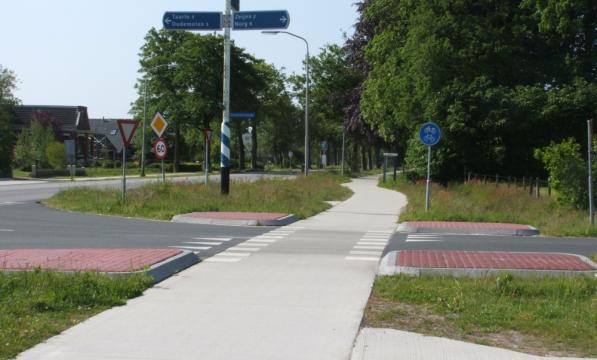CTC calls for swift progress as McLoughlin promises 'cycle-proofing' action

CTC has welcomed the announcement, which came after Transport Secretary Patrick McLoughlin met with British Cycling and its Policy Advisor, the former Olympic gold-medallist Chris Boardman, followed by 3 days of talks between CTC and Department for Transport (DfT) officials last week (21-23 October).
However CTC believes DfT now needs to move quickly to ensure that the required changes can all be included in a forthcoming update to the UK's traffic signing regulations, while allowing councils to conduct trials as soon as possible. Transport for London is already conducting off-road trials of Dutch-style roundabouts, cycle-specific traffic lights and other measures which are normal in continental Europe but still not permitted in Britain. So far DfT officials have not yet committed to a timescale for making the neccesary changes to UK traffic rules.
With a consultation on various cycle-friendly changes to traffic regulations already expected in 2014, CTC believes these and other continental forms of cycling provision should now be included as part of that process, while councils like Manchester, who want to trial them in the meantime, should be allowed to do so without delay.
CTC's Campaigns & Policy Director Roger Geffen said:
Councils shouldn't have to wait 2 more years before they can implement Dutch-style cycle facilities, as their Government funding allocation runs out in 2015! The Prime Minister's promised 'cycling revolution' is long overdue, and the sooner we can get it underway, the better.
Roger Geffen
CTC Campaigns Director
"CTC strongly welcomes the Transport Secretary's commitment to change the cycle planning rule-book in ways that we and other cycling groups have long called for. We now urge the Department to make these changes in full at the earliest opportunity. Councils shouldn't have to wait 2 more years before they can implement Dutch-style cycle facilities, as their Government funding allocation runs out in 2015! The Prime Minister's promised 'cycling revolution' is long overdue, and the sooner we can get it underway, the better."
CTC believes that road networks, buildings and communities need to be fundamentally redesigned to be cycle-friendly and ‘people-friendly’, to encourage a massive step-change in cycle use, with people of all ages, backgrounds and abilities feeling able to cycle safely and confidently for all types of journey.
The concept of "cycle-proofing", strongly backed by both CTC and British Cycling, aims to ensure consistently high standards of cycle-friendly design in all highway and traffic schemes, as well as new developments and planned road maintenance work. CTC has been calling for new and consistent design standards so that quality infrastructure becomes the norm. At present for instance, the Highways Agency's "Design Manual for Roads and Bridges" (which the HA is now promising to revise) sets even lower minimum standards for cycle track widths from those contained in the Department for Transport's 'Local Transport Note' (LTN 2/08) on Cycling Infrastructure Design. CTC believes that cycle-proofing will also require substantial changes to traffic regulations, traffic modelling and scheme audit processes, and to the training of planning and engineering professionals.
High-quality cycle facilities are vital for overcoming the actual and perceived risks of cycling on busy roads and junctions. Yet in Britain, most cycle tracks are poorly designed and often downright dangerous, creating conflict both with pedestrians and with turning motor vehicles at junctions (where around 75% of cyclists' injuries occur*), or simply giving up when they are most needed. Hence they are failing to Get Britain Cycling, despite overwhelming public and political support for action to do so. New regulations are essential if segregated cycle tracks are to deliver the "cycling revolution" promised by David Cameron earlier this summer.
[* Source: Department for Transport, Reported Road Casualties Great Britain 2012, table 20006]

